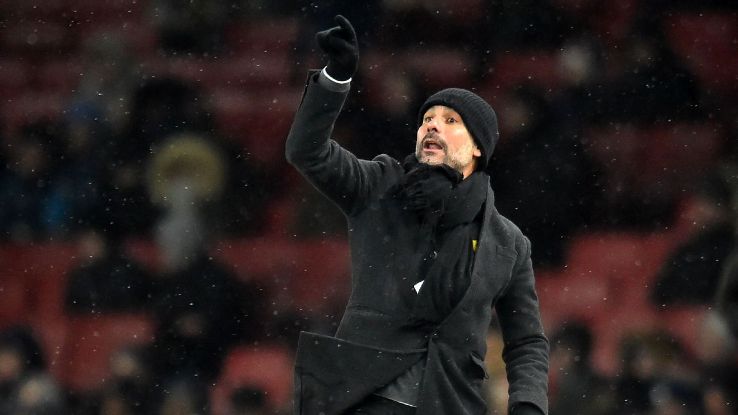

When is a winter break not a winter break? The answer, it seems, is when an unsatisfactory compromise is cobbled together by the Premier League, Football Association and the Football League.
Barring a dramatic late U-turn by the three key stakeholders in the English game, sources have told ESPN FC that a top-flight winter break from the 2019-20 season will be confirmed before Gareth Southgate’s England squad head off to Russia for the World Cup in June.
A mid-season break is long overdue in England, with the Premier League the only major competition in Europe to plough on for an entire league campaign without a temporary shutdown.
Italy and Spain currently have mid-season breaks lasting 13 days in Serie A and La Liga respectively, while in Germany the Bundesliga had a 22-day shutdown this season which was actually reduced from its usual 30 days.
The top managers and players, and a succession of England bosses too, have pleaded for a Premier League winter break for years and it is only now that an agreement finally looks to be in place.
But the proposals for the English winter break are nothing more than a lame attempt at ticking a box.
The current blueprint may yet change over the coming weeks as the three stakeholders fine-tune their plans before announcing a joint agreement, but it now appears as though a 13-day break between late-January and early-February will be the best that the group can come up with.
Any break is clearly better than no break, but the timing of the planned shutdown is so late that many coaches and players would argue that the damage will already have been done to their squads by the time clubs are given the chance to catch their breath.
Performance data has shown that players are most at risk of injuries caused by fatigue during December and January due to the excessive workload caused by the number of fixtures at this stage of the season.
This season, for instance, Premier League champions Manchester City played 17 games during December and January, with Pep Guardiola’s players fulfilling fixtures in all three domestic competitions and the Champions League.
They then played just five games in February, including one in the Champions League, so their workload had already reduced dramatically by the time they emerged from the December-January marathon.
In Spain, Italy and Germany, the mid-season break is precisely that: mid-season. The players’ bodies are given time to rest and recover in early January before resuming for the second half of the season, but Premier League players risk having already hit the wall by the time the proposed English break comes around.

The timing is also questionable for those English clubs competing in Europe, with the knockout stages traditionally starting in the second week of February.
Surely it would not be sensible for those clubs to take two weeks off immediately before being asked to take on the challenge of Champions League football as soon as they are back in action.
Another flawed idea is the proposal of a staggered break, with Premier League games continuing throughout it due to half of the clubs starting their shutdown one week and the rest starting theirs the week after.
You either have a break or you don’t and this seems to be a case of the latter.
One key sticking point to the timing and length of the winter break is the Football League’s determination to retain a two-legged semifinal in the Carabao Cup. This is despite high-profile managers such as Guardiola, Jose Mourinho and Jurgen Klopp questioning the sense and value of staging games over two legs in this competition.
While the FA has bowed to demands for change in the FA Cup, against the wishes of many traditionalists, by ending replays beyond the quarterfinal stage and being prepared to accept a similar move in the fifth round — which would be played as one-off games in midweek under the winter break plan — the Football League believes that there remains a desire for two-legged semifinals.
But by playing them as one game at a neutral ground would free up a midweek date in mid or late January for a round of Premier League games or FA Cup third round replays.
Such a move could then allow for a longer break and, perhaps, an earlier one.
Maybe the proposed shutdown is merely a means to an end and one which will lead to a more suitable break, both in terms of length and timing, in the near future. But what we are set to get appears to be a classic decision made by committee which has more faults than solutions.
Mark Ogden is a senior football writer for ESPN FC. Follow him @MarkOgden_

Be the first to comment